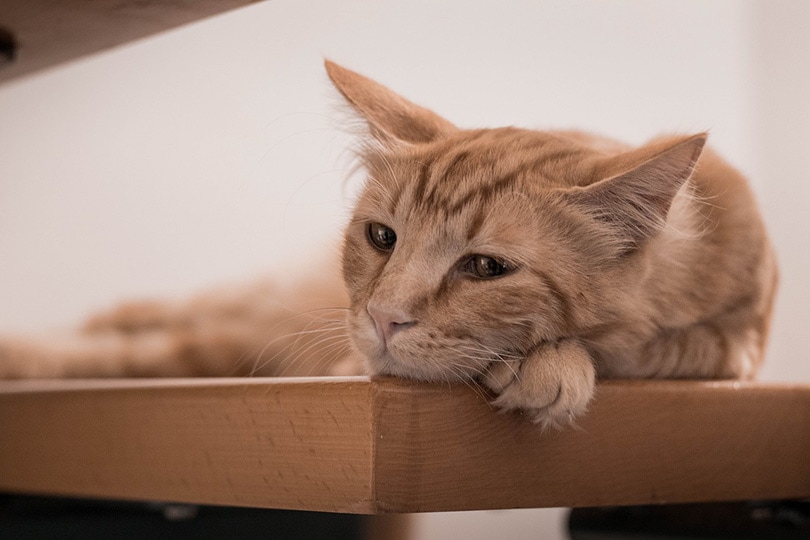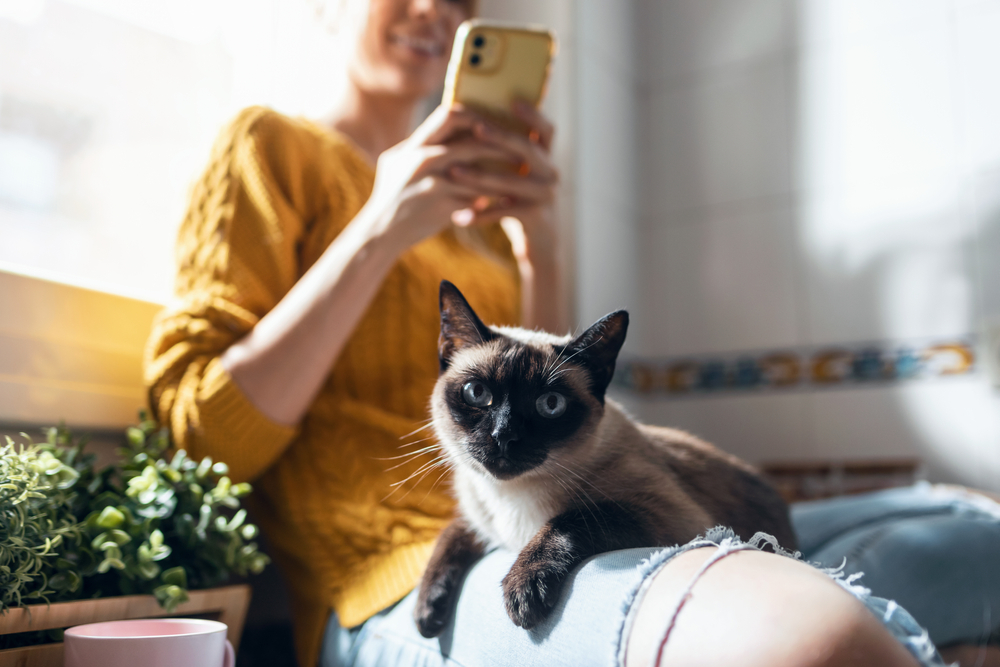Cats and humans can form deeply meaningful friendships with each other. So, it’s understandable and completely normal to experience grief after the loss of a pet cat. Grief is a highly individualized experience and will affect people differently. In general, strong feelings of grief can last for about 6 months.
Although it’s difficult to go through, grieving is a natural and normal response to have when facing a significant loss. Here are some things you can expect to experience while going through grief.

How Long Grief Lasts and What to Expect When Grieving
Strong feelings of grief usually last for around 6 months, but in truth, there is no timeline for grief.
- Denial
- Anger
- Bargaining
- Depression
- Acceptance
These five stages are meant to describe common experiences people have while in grief. However, it’s important to know that grief is complex and doesn’t typically progress through these stages linearly or over a certain timeline. You may go back and forth between stages, and you might not experience all stages either. It’s more helpful to treat the stages of grief as general guidelines that may explain some of the things you’re feeling and experiencing.
Many emotions can also surround grief. Sadness is one of the most common emotions. It’s also normal to feel emotions like anxiety, anger, or guilt. Relief is also a common emotion that’s typically felt by people who have lost their cat after their cat has suffered for a while. You may even feel pockets of gratitude during your grief as you reflect on some of your favorite memories of your cat.


The 7 Ways to Cope With Grief
There are many different ways to cope with grief, and it’s helpful to find several ways to help you get through it. Here are some common ways people cope with grief after losing a pet.
1. Organize a Memorial
Having a memorial gathering can help you and your loved ones say their goodbyes and share any fond memories and favorite things about your cat. It’s also a good way for you to receive support from people who care about you.
2. Create a Memento of Your Cat
You can find all kinds of pet mementos designed to preserve the memory of your cat. There are lockets and keyrings that can hold pictures or fur clippings of your cat. Some artisans specialize in pet mementos and can create beautiful, customized pet portraits or figurines. You can also make your own photobook of your cat.
3. Journal
Writing in a journal is another way to cope with grief. Journals provide a safe space for you to express your honest thoughts and emotions. You can also write down things about your cat that you don’t want to forget.

4. Build a Support System
Grief is difficult to go through alone, and it makes a world of a difference to have people around you who can provide support when you need it. Sometimes, talking to someone about what you’re experiencing can help you work through your grief and make you feel better. It’s often helpful to talk with other cat lovers, as people who haven’t had pets may not be able to relate as well to your experience.
5. Volunteer at an Animal Shelter
Seeing another cat right after yours passes away may be too overwhelming. However, it can be helpful to spend time with other cats after some time has passed. Volunteering at an animal shelter can provide opportunities for you to experience cat companionship again, and you’d also be supporting a good cause. So, it’s worth looking into volunteer opportunities at your local animal shelter whenever you’re ready to be around cats again.
6. Just Cry
Oftentimes, there’s nothing like a good crying session to feel better. Research has shown that crying releases oxytocin and endorphins, which are the feel-good chemicals that your body produces. They also help with soothing physical and emotional pain.
If you don’t feel comfortable crying in front of others, find a safe space in your home where you can cry on your own. It can be helpful to play sad music or watch a sad movie to get the tears flowing.

7. Seek Professional Help
Sometimes, grief can be so overwhelming that it inhibits us from our daily activities. Pet owners can become depressed, have trouble eating or sleeping, or lose motivation to do activities they once enjoyed. If you find yourself having difficulty completing tasks for daily living, it’s recommended that you seek professional help. Grief counseling is available to help you process and journey through your grief.
Can Cats Experience Grief?
Pets can also grieve when one of their companions dies and when they experience life changes impacted by their death. Like humans, cats can become depressed, have decreased appetites, and be less active. They may hide more frequently or try to look for their pet companion around the home. Some cats will become clingier with their owners.
Cats can mourn for several weeks to months, depending on how strong their bond is with their companion. You can help your cat by giving them plenty of love, attention, and affection. They may also appreciate eating some of their favorite treats or playing with their favorite toys with you.
If you notice that your cat’s grief is significantly affecting their daily living, it’s best to talk with your veterinarian. Your veterinarian can help you find ways to help your cat stay healthy during their mourning period.


Conclusion
People’s experiences with grief will vary, and the grief can last for different periods of time and feel very intense at times. Therefore, it’s important to develop coping strategies to help you through your grief.
There’s also no need to feel embarrassed about grieving over a pet. Cats are special companions, and cat owners are often left with a huge hole in their hearts when their cats pass. Feeling grief is normal, and if you’re patient with yourself, you’ll find that it does get easier with some time and will eventually pass.
See also:
- How Long Do Cats Mourn the Loss of Another Cat? Feline Grieving Explained
- Do Cats Grieve for Their Owners? A Helpful Guide
Featured Image Credit: JosepSuria, Shutterstock









